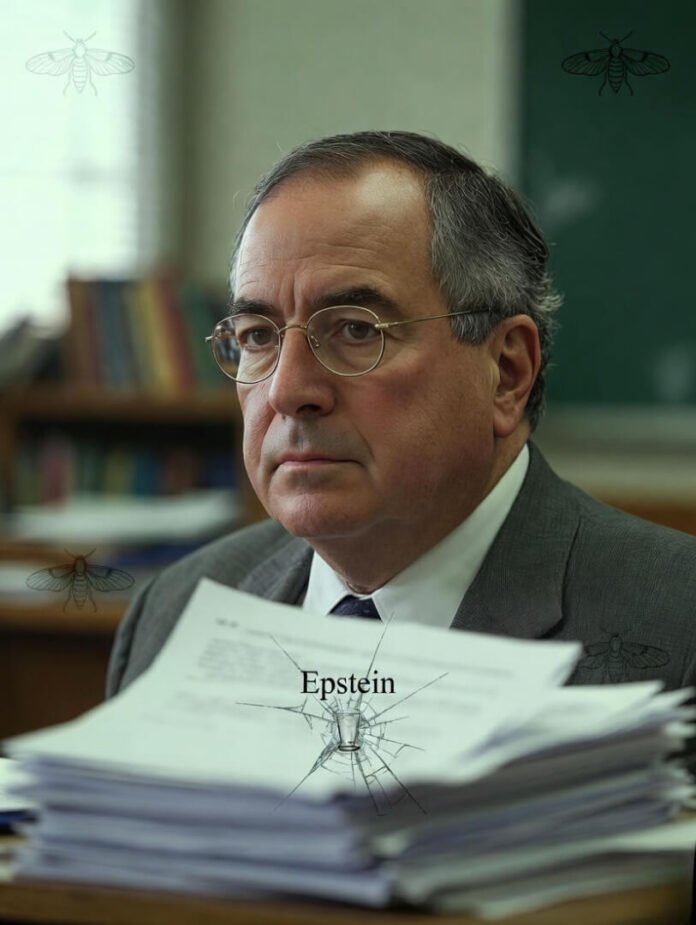
In the shadowed corridors of American power, where economists once whispered fortunes into the ears of presidents, a single stack of emails has toppled a towering figure. On November 18, 2025, Larry Summers Deeply ashamed , the Harvard luminary and former Treasury Secretary, announced his retreat from the public stage. It’s a move laced with contrition, born from revelations that bind him uncomfortably close to Jeffrey Epstein, the financier whose crimes cast long, toxic shadows.
This isn’t just another footnote in the endless Epstein saga—it’s a personal unraveling. Summers, in a statement to Politico, laid bare his remorse: “I am deeply ashamed of my actions and recognize the pain they have caused Deep Regret .”
The Emails That Broke the Silence
House Oversight Committee documents, unsealed last week, paint a picture far cozier than casual acquaintance. From 2013 to 2019, Summers and Epstein traded notes on everything from political barbs to romantic quandaries. One 2017 missive from Summers muses on elite hypocrisy: “I’m trying to figure why [the] American elite think if u murder your baby by beating and abandonment it must be irrelevant to your admission to Harvard… DO NOT REPEAT THIS INSIGHT.”
These aren’t abstract policy chats Deep Regret ; they’re intimate, revealing a bond that persisted years after Epstein’s 2008 plea for soliciting an underage girl. For context on the broader Epstein files, check this Guardian explainer on the documents and potential future releases. It’s a web that ensnared executives, journalists, and academics alike, but Summers’ thread feels particularly raw—especially given his 2014 plea to Epstein for $1 million to fund his wife’s poetry project, as detailed in a 2023 Wall Street Journal investigation Deep Regret .
Backlash from Allies and Adversaries
The fallout has been swift and bipartisan. She went further, questioning his fitness for any advisory role or classroom podium. Read Warren’s full CNN interview here.
Even from Trumpworld, the knives are out. An anonymous senior official told Politico that Summers’ lingering roles—at Bloomberg News, OpenAI’s board, and Harvard—defy reason: “What more revelations about him and his ‘wing man’ will it take?” This echoes a fresh probe ordered by President Trump last week, tasking Attorney General Pam Bondi with scrutinizing Democrats named in the files—including ironic nods to Trump’s own Epstein history. For a timeline of that inquiry, see Politico’s coverage.
Institutions are severing ties too. The Center for American Progress confirmed Summers’ exit as “distinguished senior fellow,” a left-leaning think tank move signaling broader institutional recoil Deep Regret .
Echoes at Harvard and Beyond
Harvard, Summers’ academic home since his ill-fated 2001-2006 presidency (cut short by sexist remarks on women in STEM), is roiling anew. Professors like statistics whiz Joseph K. Summers echoed his regrets there too: “My association with Jeffrey Epstein was a major error of judgment.”
Yet, he’s not vanishing entirely—classroom commitments persist, a nod perhaps to redemption through education. As one Crimson op-ed pondered, does this saga reignite debates on elite accountability in academia?
In my view, this isn’t just Summers’ fall; it’s a mirror to how power insulates the powerful until it doesn’t. Rebuilding trust? That’s the real gamble. What do you think—forgivable misstep or unforgivable blind spot? Drop your take in the comments.
Coral Murphy Marcos contributed reporting. Originally inspired by Guardian coverage—full article here. Published Tue 18 Nov 2025 02.17 GMT.










































